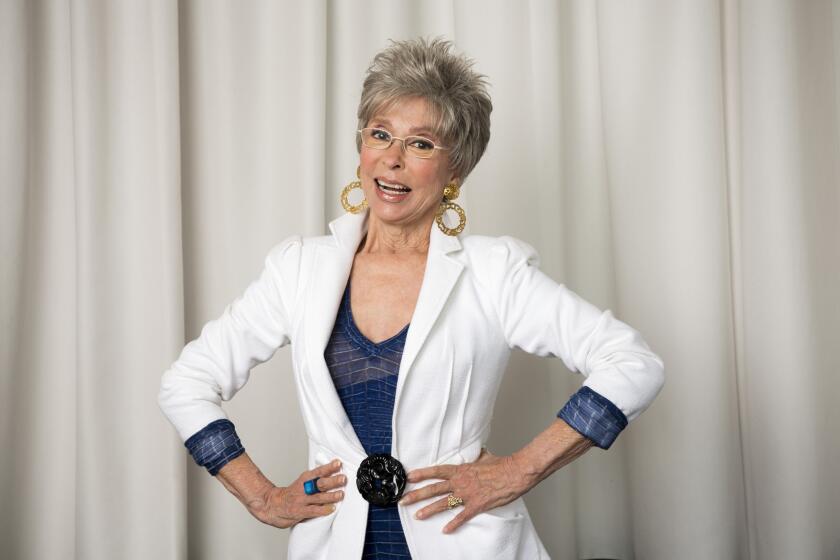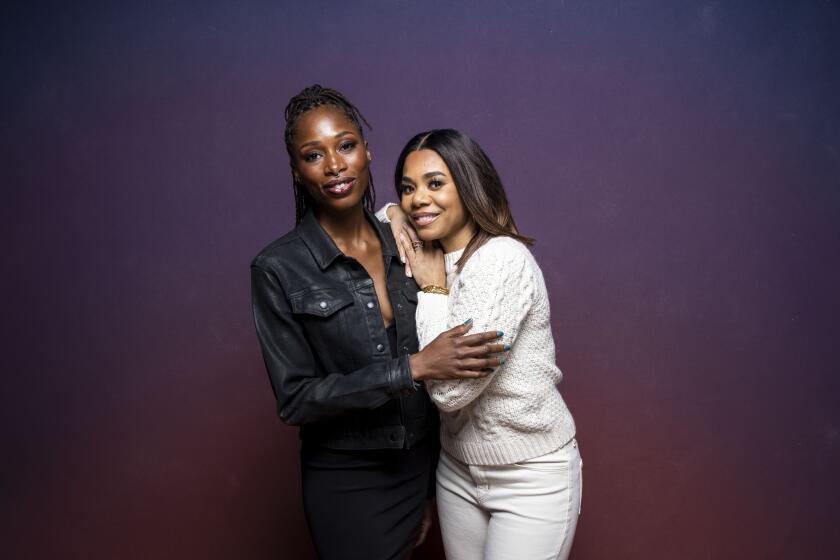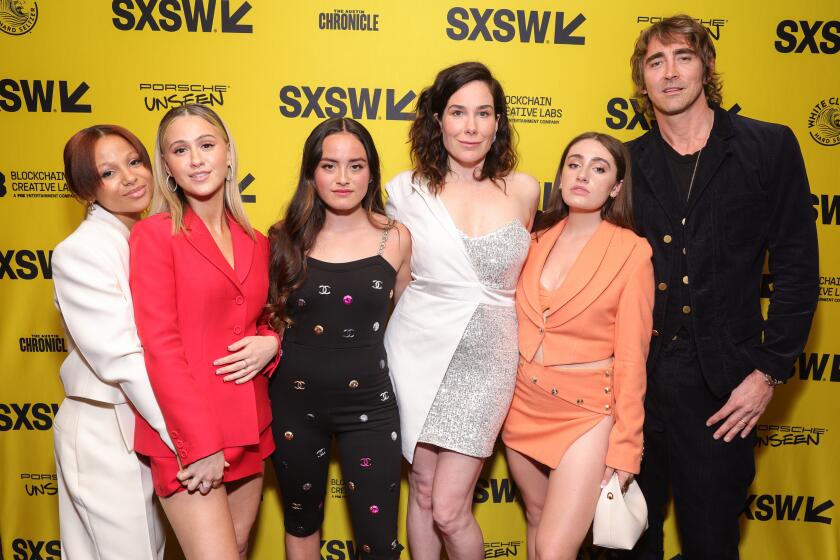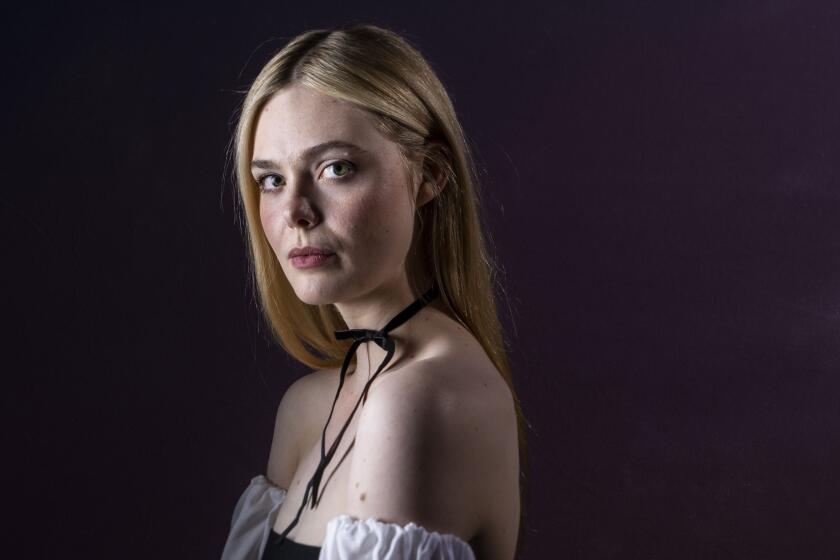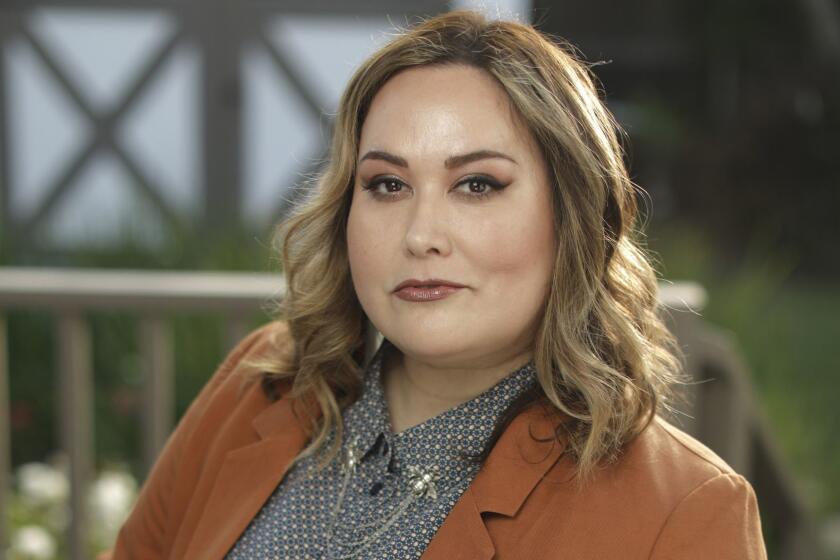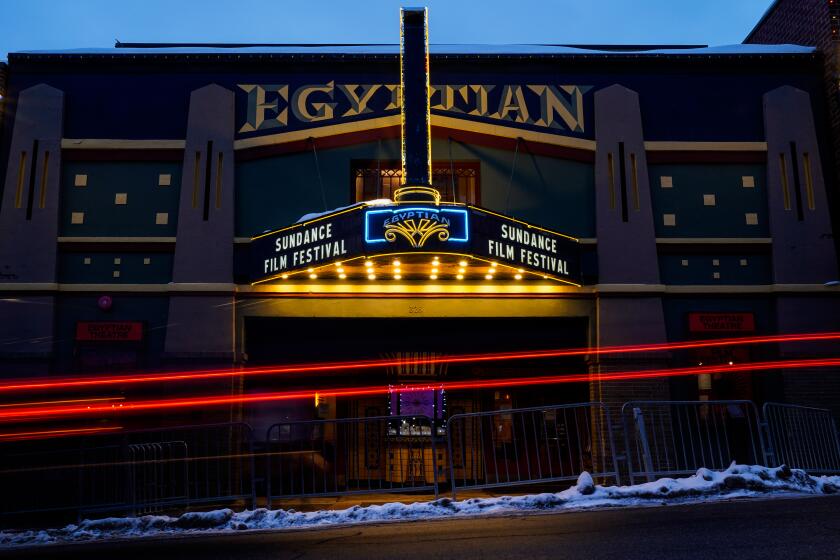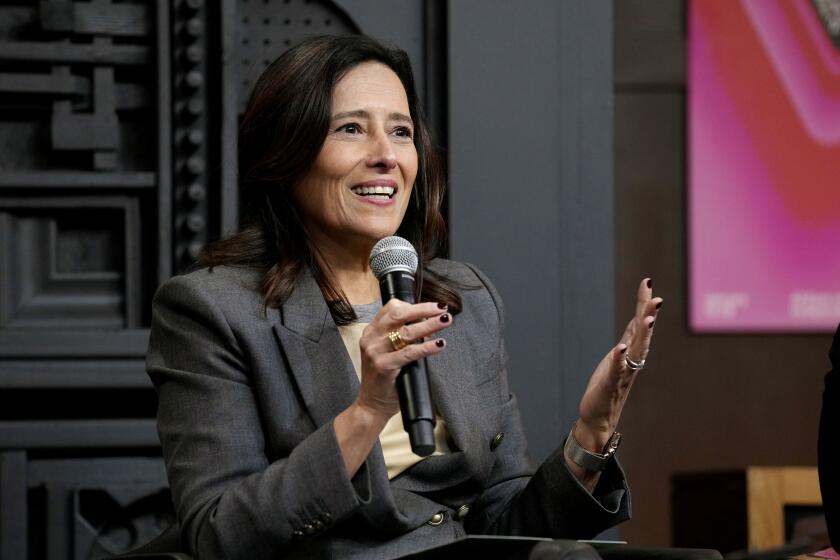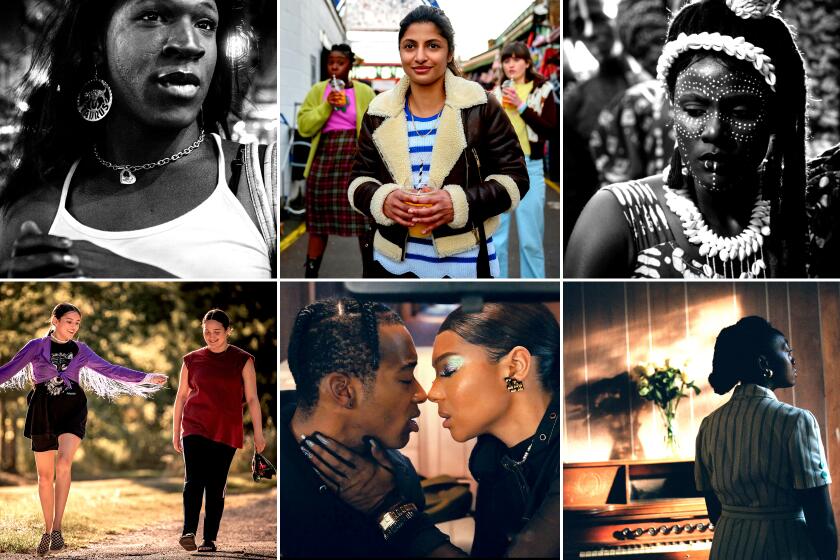- Share via
At 89, Rita Moreno has a lot of stories to tell. She hasn’t slowed down long enough not to. And while she’s reflected on many of them before, recounting much of the significant ones in her 2013 autobiography, “Rita Moreno: A Memoir,” she wasn’t quite prepared the first time she saw a cut of the documentary about her life.
“I literally went: ‘Wow, what a life I’ve had,’” she recalled. “It kind of surprised me in a way. You live your life thinking it’s just your life. And then somebody comes along and says, ‘Oh, no, it’s so much more than that. And it represents so much more than that.’
“Rita Moreno: Just a Girl Who Decided to Go for It,” which made its debut at the virtual Sundance Film Festival on Friday, explores the peaks and valleys of her personal life and decades-long career that broke barriers even while being stifled by them.
Directed by Mariem Pérez Riera, the 90-minute film traces Moreno’s extraordinarily full life: her humble upbringing in Puerto Rico, the splitting up of her family — and the ensuing culture shock — when she moved to New York City with her mother as a young child, her struggles navigating Hollywood’s sexism and racism to forge a lasting career, and the turmoils of her most significant relationships, namely a tumultuous eight-year love affair with actor Marlon Brando that drove Moreno to attempt suicide, as well as her nearly five-decade marriage to cardiologist Lenny Gordon, who died in 2010.
What emerges is a portrait of resilience and of a woman, eventually and resoundingly, finding her voice.
“I really wanted to have Rita be that inspiration to women that have gone through the same fights that she has been going through throughout her life,” says Pérez Riera, who also hails from Puerto Rico.
Moreno allowed the director to follow her over seven months at various locations, including her home in Berkeley and on the set of the “One Day at a Time” reboot, in which she charmed critics with her portrayal of overbearing and lovable matriarch Lydia Alvarez. (Riera is also the mother of Marcel Ruiz, the actor who plays Alex “Papito” Alvarez in the sitcom, which was recently canceled.) The film opens with Moreno’s Cuban-themed 87th birthday party at her Berkeley home in December 2018 — the actress, vivacious as ever, dancing around in a crimson red dress amidst the revelry of partygoers.
Three years later, Moreno is now navigating the virtual press blitz of the festival from her home, where she has spent most of her time in quarantine. Her buoyant warmth comes through, even by phone. She says she hadbeen bracing for a severe windstorm in her area: “I hope it doesn’t knock everything down outside my home. Is it cold where you are? I’m always freezing.” And she mentions that she’s been spending much of her down time de-cluttering her home — though, she questions whether she’s succeeding: “I forget what that fairy tale was where everything kept coming back and growing — it’s like that. I’m like, ‘Jesus, I thought I got rid of this crap?!’”
The act of reflecting on her life for this legacy project, she says, wasn’t a difficult process, which she attributes to the years in therapy she’s already spent assessing different areas of her life story.
“The hardest thing I ever did was learn to love myself,” she says. “And it’s so important to look back and reflect because you can still learn something. More often than not, the kind of things I realized when I look back is, ‘Oh, that’s why that happened’ or ‘That’s why I did that.’ There’s power in that. It keeps you moving forward.”
And if anyone has moved forward, it’s Moreno.
She’s in the elite club of EGOT winners (those who have won an Emmy, a Grammy, an Oscar and a Tony). She’s received the Peabody Career Achievement Award and the Screen Actors Guild Lifetime Achievement Award, as well as the Kennedy Center Honor for her lifetime contributions to American culture. And she’s been awarded the Presidential Medal of Freedom by President George W. Bush and the National Medal of Arts by President Obama.
There’s still more ahead. Perhaps best known for her memorable turn as Anita in 1961’s “West Side Story,” the veteran actress will appear in Steven Spielberg’s remake of the classic musical — slated for release later this year after a postponement due to the COVID-19 pandemic — in a different role.
But Moreno’s trailblazing for Latino actors wasn’t without its struggles. The documentary digs into the decades of typecasting Moreno endured early in her film career, often playing Latina “spitfires” — a word she came to despise — or cast as the resident “native girl” with an accent.
“When I went to Hollywood, I really learned where I stood in the world, and it was so sad and frustrating,” she says. “There is something so awful about, if you were a performer, asking your agent to submit you for something and the people won’t even see you because they think you’re too Spanish or something. It’s so frustrating and you want to run and knock their door down and say: ‘Look, let me read this scene for you. I’m good. I’m really good. Let me. Watch me. Listen to me.’ And you can’t do that. It was also so embarrassing to me that my agents kept getting turned down. I remember thinking, ‘Well, they’re probably not crazy about me as a client because I don’t work much.”
Launched by Tanya Saracho’s United Latinx Project, the letter, signed by more than 270 Latinx creatives, calls Hollywood “complicit in our exclusion.”
Even after Moreno won the Academy Award for “West Side Story” — and earning the distinction as the first Latina to win an Oscar — her career didn’t experience a boost. She didn’t have any significant acting credits for nearly a decade, partly because she refused to play roles she felt perpetuated stereotypes. And while some progress has been made since then, Latinos remain greatly underrepresented in the entertainment industry.
“I don’t think our community has moved a whole lot in the eyes of Hollywood and we’re all talking about that constantly,” Moreno says. “We have a long way to go. I don’t think that in my lifetime I’m going to see that change — I really don’t. I mean ... I’m 89. I’ll be lucky if I make it to the ‘West Side Story’ release in December.”
As if to ease her listener’s discomfort with the idea of her inevitable mortality, Moreno says reassuringly: “Hey, I’m very realistic, so don’t worry. But I do think about it a lot.” In this moment, though, she’s the most alive she’s ever been. And, for good measure, she has an appointment to get the COVID-19 vaccine in a couple of weeks.
Some of the more harrowing parts of the film are when Moreno recounts the sexual harassment she often faced as an ingenue in Hollywood. One of the most shocking stories she describes is being raped by her agent.
“I never expected to talk about that,” she says. “It’s not exactly something like, ‘Oh, here’s one of the things I want the world to know.’ I was very hesitant because, believe it or not, though I am a rather direct person, there are certain things that are taboo simply because of the age in which I lived. That’s not the kind of thing I would normally indulge in.
“But I thought it was very important, mostly because of the outcome — that I went right back and continued working with him. It shows you how little I really thought of myself. It amazes me. It absolutely astonishes me. But as I saw it, there was no one else to help me with my career and that’s what you had to do.”
She says she didn’t tell anyone about the assault at the time.
“I was too ashamed to tell my mom and I didn’t have girlfriends to whom I could relay such stuff,” she says. “Can you see talking about something like that then? More than likely, I’d be told: ‘Well you brought it on.’ And then you start to question yourself.”
There’s an added layer of poignancy to the film as Moreno recounts those experiences. Production on the film covered the time in which Christine Blasey Ford testified before Congress after accusing then-Supreme Court nominee Brett M. Kavanaugh of sexual assault when they were teenagers. Pérez Riera captures Moreno watching the hearing from her dressing room on the set of “One Day at a Time.”
A wide range of narrative and documentaries highlights to watch for at the first virtual Sundance Film Festival.
Moreno says she’s grateful to have lived to bear witness to the collective power of the #MeToo movement and the conversations it has provoked.
“I think the #MeToo movement has played an enormous part in almost every woman’s life,” she says. “I never thought I’d see this in my lifetime. Women are getting stronger; there is a lot of bravery taking place. Women really think so differently now than they did when I was a girl. Oh, my God, I’m 89 and think of all the stuff I’ve seen and heard and experienced. I hope things only get better. It’s not just important for women; it’s important for men too. Men still have a great deal to learn and there’s nobody like a determined women to show them and teach them.”
In the meantime, this determined woman has another lesson in mind for anyone who watches the story of her life. And it’s this:
“It pays to dream and it pays to pay attention to your dreams. And there is an absolute payoff to hanging on and being stubborn and just falling down and getting up.”
More to Read
Only good movies
Get the Indie Focus newsletter, Mark Olsen's weekly guide to the world of cinema.
You may occasionally receive promotional content from the Los Angeles Times.
